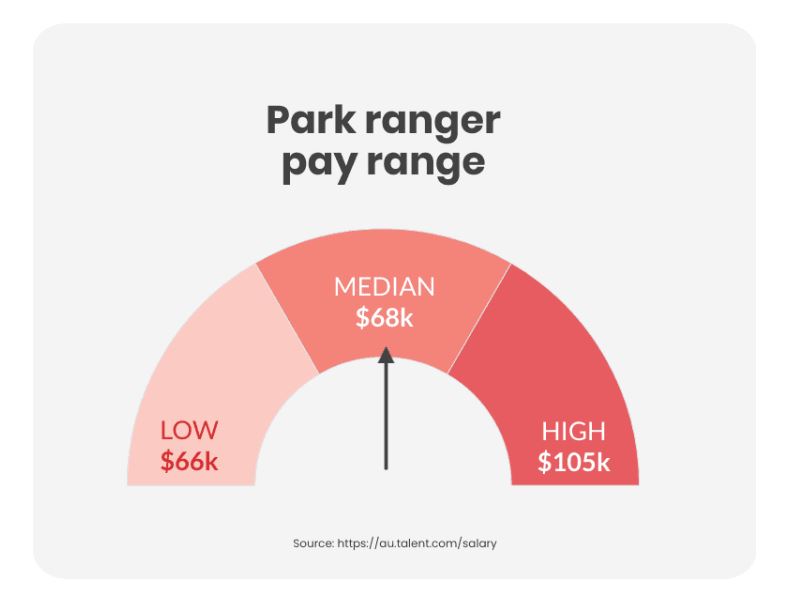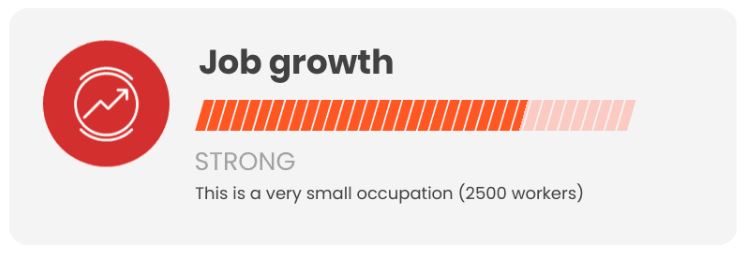How to Become a Park Ranger: Make Your Office the Great Outdoors

Do you love being outside? Do you value our precious nature reserves, historic sites and wildlife? If so, a career as park ranger could be perfect for you.
A wildlife park ranger has one of the most critical roles in conservation and land management in Australia. It’s a varied job, encompassing an extensive list of responsibilities and activities. We rely on these experts to maintain, monitor and care for our magnificent natural habitats.
We are fortunate to live in a country with some of the most beautiful, unusual natural flora and fauna. People come from far and wide to marvel at our unique creatures and immerse themselves in our majestic forests, deserts, beaches and mountains.
We’ve got it all – and with such treasures at our doorstep, we will always need excellent park management. Park rangers that know the landscape and all of its secrets are invaluable, working to ensure our delicate ecosystems are always in health.
Landing a job as a ranger is a popular ambition, but how do you get there? We take a closer look at the role — and explore how to get a headstart in this exciting career.
What does a park ranger do?
A park ranger works as part of a larger team and is assigned to a particular land area to look after its natural or cultural environments. They also help the public understand and safely enjoy their visit.
Most of the day-to-day activities of a park ranger involve being out there in nature, getting your hands dirty and making a direct, positive difference to our ecosystems. But there is a lot more to this career trekking around being a nature superhero.
The responsibilities of a park ranger also include researching, planning and (maybe most challenging) people management to create a balance between conservation and recreation.
Here are some of the duties an Australian park ranger is responsible for:

Do park rangers get paid well?
A park ranger’s salary is quite competitive, but a few factors will determine the starting salary you can expect. These factors include the specific park agency that is hiring, the size of the area you will cover, the scope of the job, the park ranger position and of course, education and experience.
Salary averages for a park ranger in Australia are:
- Low: $66,000
- Median: $68,000
- High: $105,000


What kind of person would make a good park ranger?
- Team player
To thrive in a cohesive team responsible for the health of Australian nature reserves, wildlife and visitors, you need to have excellent communication skills with an ability to collaborate effectively to ensure duties are carried out correctly. - Physically fit
As a park ranger, you also need to have the adequate physical ability and strength to be performing outdoor activities and a desire to get stuck into some good old fashioned hard work. - Inquisitive
An interest in science and how you can apply it to conservation would be a huge advantage. Innovation and strategic thinking are essential in park rangers work to solve issues in ways that perhaps have not been tried before. - Nature lover
And, of course, anyone starting as a wildlife park ranger must have an affinity for the natural environment and the wellbeing of all living creatures. Passion for the role ensures a consistent motivation to do the job well and means you will be happy in this role long term.
How to become a park ranger
- 1. Get training
Although no formal qualification is required to start as a park ranger in Australia, there is stiff competition for roles in this sector, so completing a course in environmental management, conservation or land management will give you a considerable advantage. Find a conservation course to suit you. - 2. Volunteer
We recommend, if possible, gaining some work experience through volunteering within national parks before applying for a role. This shows you have a genuine interest in the sector and shows you have some basic knowledge. - 3. Get a police check
You will, at some point, be required to undergo a National Police Record Check, as with all roles within government agencies. - 4. Apply with your state department
There are recruitment information and vacancies, as well as traineeships and volunteer program processes available on specific state websites. Many also have tips and tricks to ensure your job application is on point.
You can find information for each state and territory’s parks department here:
- NSW – National Parks and Wildlife Service (NPWS)
- VIC – Parks Victoria
- QLD – National Parks Association of Queensland
- WA – Parks and Wildlife Service
- SA – National Parks and Wildlife Service South Australia
- TAS – Tasmania Parks & Wildlife Service
- NT – The Parks and Wildlife Commission
As a park ranger, you get to work outside in a place that you love, with awesome people, in a role that makes a difference. As demand increases for ranger jobs and jobs in animal care or zookeeping, you can boost your chances of getting into these fields and lay the foundations for your new career with a short course.